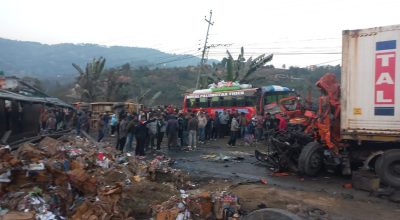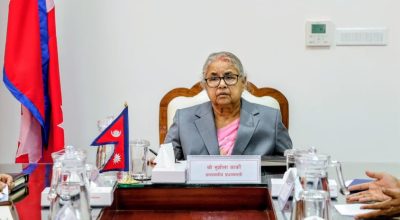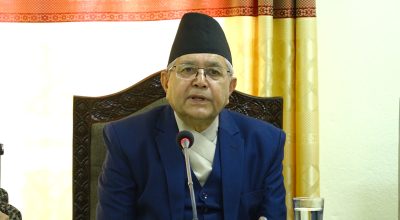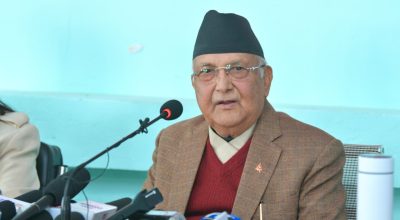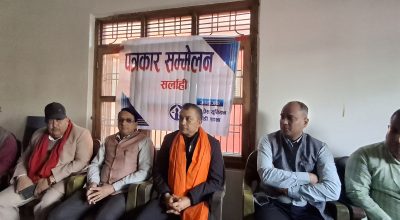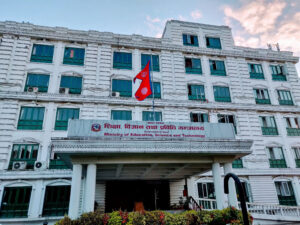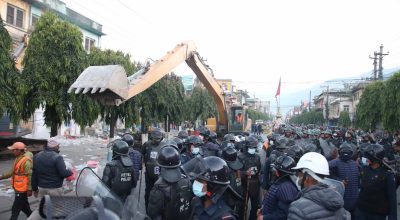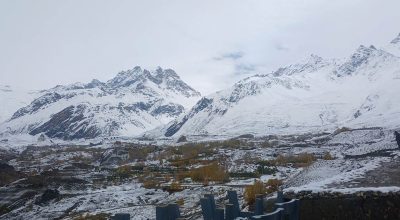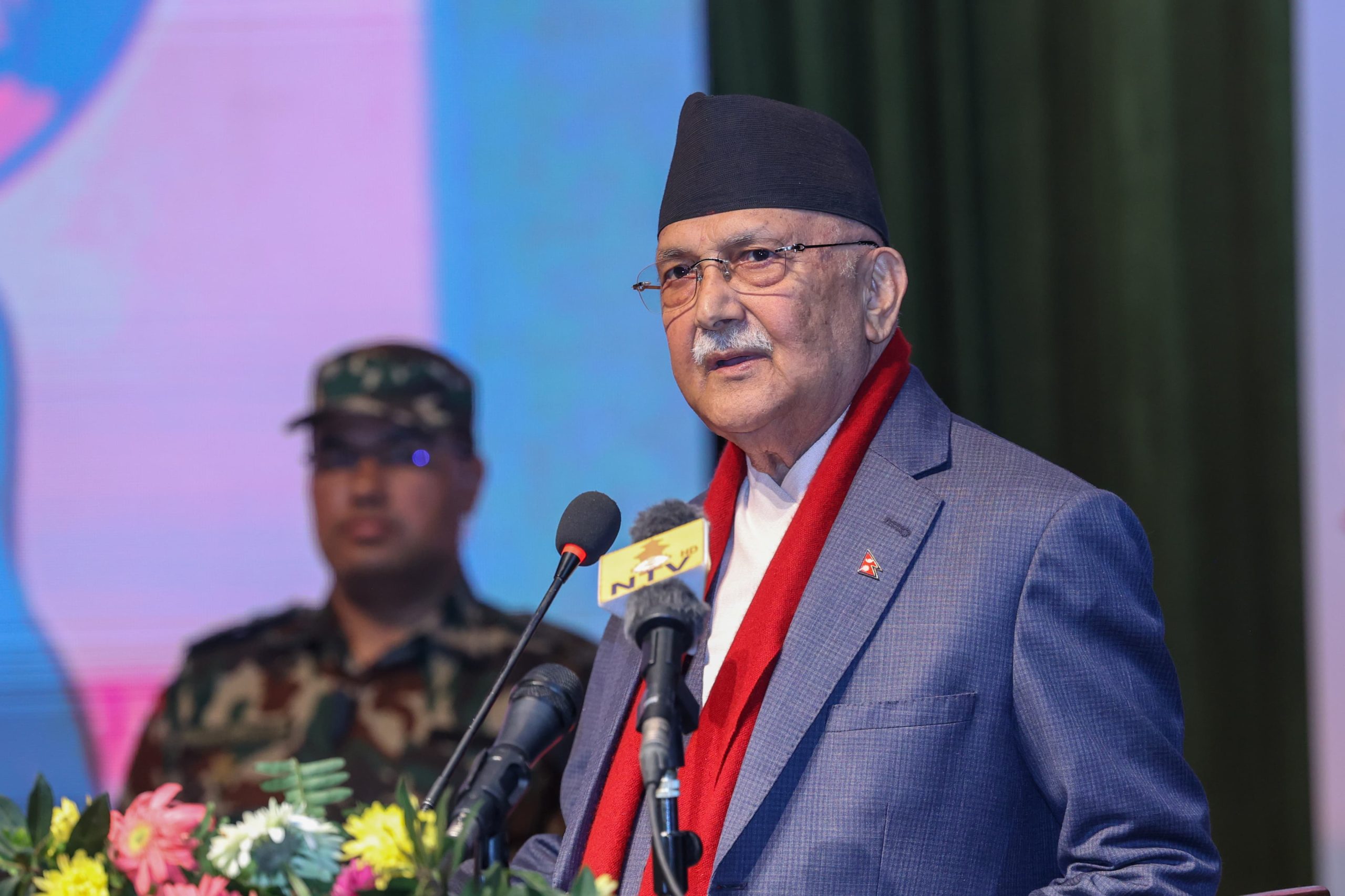
Kathmandu, Nov 27: Prime Minister KP Sharma Oli has said that the issue of population should be seen through the perspective of economic, social and political strategy.
Inaugurating the Sixth Asian Population Conference here today, he said that the government’s efforts are continuing to meet the basic needs of the marginalized and disadvantaged communities by paying attention to the correlation between development and population density.
PM Oli opened the conference via virtual means, talking to the mother of a new-born baby at Kathmandu Medical College Hospital. On the occasion he emphasized that the gap between the rich and the poor should be eliminated by adopting equality and inclusive policies, and that everyone should be united in building a world with human rights, health and hope, including self-respect.
Prime Minister Oli hoped that the conference to be held on such topics would give profound suggestions for human development and better living conditions as well as solutions for the protection of the Earth and human beings. He said that sustainable development, good governance and collective efforts are essential, saying that global partnership should be increased with importance to deal with the issue of climate change.
Prime Minister Oli stressed that the aspiration of ‘Prosperous Nepal: Happy Nepali’ should be transformed into tangible achievements.
“We meet at a critical juncture in human history-a time that calls for decisive action to build global peace and prosperity. Our collective responsibility is clear: no individual anywhere in the world should suffer the indignity of lacking food, shelter, or basic necessities. Yet millions do,” the PM said, adding that addressing this required robust investments in agricultural production and sustainable resource management.
Stating that today our planet is home to 8 billion people with the global fertility rate standing at 2.2, and the 10% of the population being aged 65 or older, he said in some regions, such as East Asia, Europe, and Northern America, this figure exceeds 20%.
“The rise in life expectancy should not be viewed as a fault but celebrated as a remarkable achievement – an outcome of policies aimed at ensuring healthier, longer lives. Therefore, in my opinion, ageing individuals should never be regarded as a burden; rather, they represent a natural and anticipated consequence of societal progress.”
Noting that the global fertility rate is not yet at an alarming level, he said the demographic transformations are profoundly reshaping the future of our societies, calling for innovative strategies and forward-thinking policies to address the emerging challenges and opportunities.
“Despite the remarkable progress of human civilization, deep divides persist- economic, social, and geographic- continuing to marginalize millions. These gaps fuel inequality and conflict. To grow and prosper as a global community, we must focus on uplifting the most vulnerable among us,” he said.
The PM further said: “Migration, a defining trend of our era, reflects the search for opportunity and hope. Yet its management remains a pressing challenge. It demands a coordinated, humane and sustainable approach, underscoring the necessity of global collaboration.”
According to the PM Oli, the conference is uniquely positioned to address these critical issues. “At a time when fertility rates are declining and populations are ageing, especially in Asia, we must explore the implications for our economies, societies, and welfare systems. The ageing population in countries like Japan, where one-third of citizens are over 65, or Nepal, where one in ten is aged 60 or above, highlights the urgency of adapting our policies,” he elucidated.
Stating that Nepal itself was experiencing profound demographic shifts, he said a skewed gender ratio at birth, with 112 males for every 100 females, and the uneven population distribution – 54% residing in the plains (Terai) while only 6% remain in the mountains – present challenges that demand immediate attention.
“The population density further highlights these disparities, with just 34 people per square kilometre in the mountains compared to 192 in the hills. As a result, the mountain and hills have become a paradise for wildlife, while the plains bear the burden of overpopulation,” he said, stressing that this situation necessitated the adoption of equitable and inclusive development policies.
In the view of the PM, this conference also marks a significant milestone as we approach the 30th anniversary of the International Conference on Population and Development (ICPD) held in 1994.
“The principles established in the ICPD – prioritizing human rights, focusing on people, recognizing the links between population and development, addressing gender-based violence, and ensuring access to reproductive health care –are as relevant today as ever. They urge us to persist in advocating for sustainable population and development policies that uphold these enduring values,” he added.
President of Nepali Congress and former Prime Minister Sher Bahadur Deuba, Vice Chancellor of Tribhuvan University Prof Dr Keshar Jung Baral, President of Asian Population Association Reiko Hayashi and others participated in the opening session of the conference. Various thematic sessions will be conducted in the conference. #nepal #population





